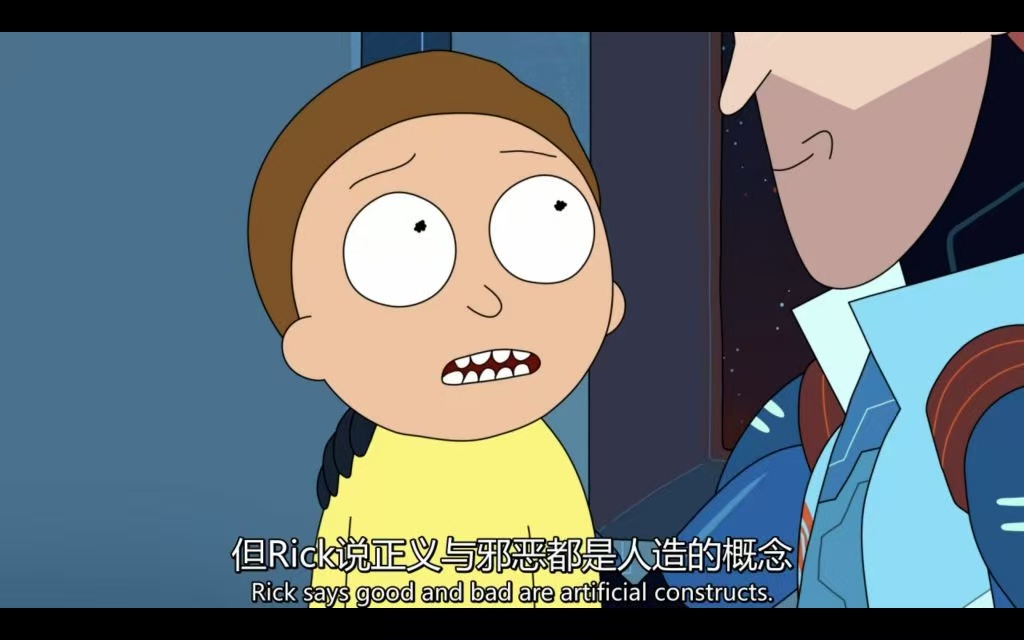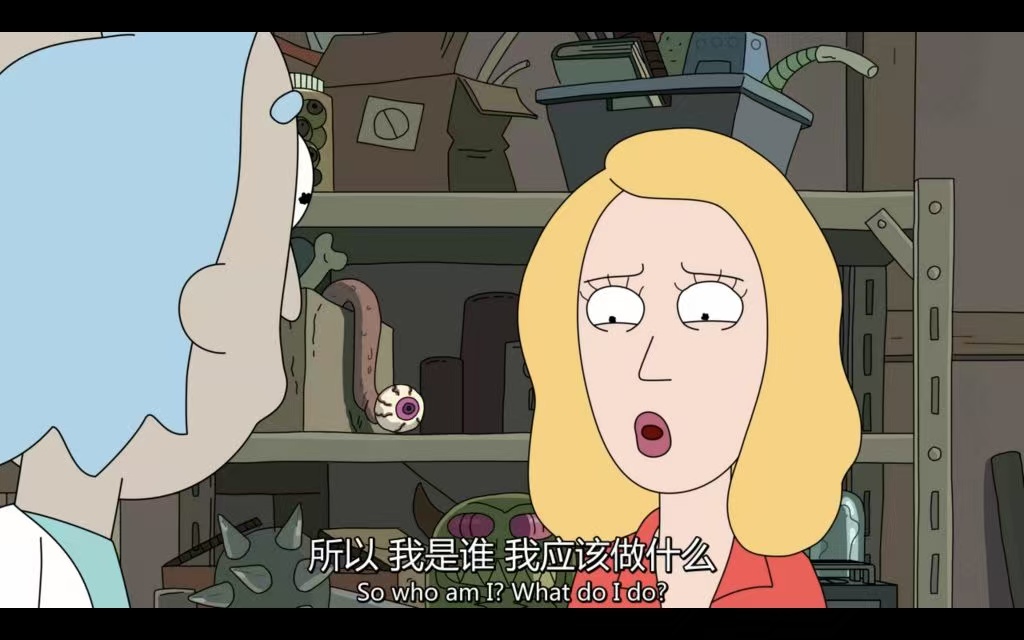1. Good and bad are artificial constructs
I hurt someone with my words at Mark’s wedding. Afterward, I kept turning the whole thing over in my mind, trying to figure out some universal code of conduct. Eventually, through some mental pathway, I arrived at this:
This world has no good or evil, only cause and effect.

Coincidentally, the very next day I saw a line in Rick and Morty that meant exactly the same thing:
Good and bad are artificial constructs.
— Rick and Morty
So-called good and evil are just human-made concepts.
Since they’re human-made, how do you know the people who invented these concepts are any smarter than you? I see far too many absurd ideas that crumble under scrutiny.
If they’re truly reasonable, fine — we can embrace them. If not, then every absurd notion becomes fair game for mockery.
As Teacher Deng of Hegelian philosophy once said: if something can’t be extended into a universal principle, it doesn’t deserve respect.
Don’t dismiss this as just another platitude. If it’s true, then every persona we’ve constructed needs to collapse and be rebuilt from scratch.
For example: Are those who condemn Li Xiaolu somehow more virtuous than her? As Yan Gongzi put it, “Seeing her so happy in that video, dancing like a young girl — I just can’t bring myself to hate her.” Does it really make sense to use fictional moral concepts to obstruct someone’s real happiness?
Or consider this: Are those “good people” who do nothing but wait for heaven’s judgment guilty themselves? At least evil people actively scheme toward their goals, while the good just sit there. When I watched In the Name of the People, I could never condemn Qi Tongwei, who tried to outmaneuver fate, but I felt genuine anguish watching Chen Yanshi protect his reputation while letting evil flourish. (Don’t even get me started on the Hou Liangpings, those arrogant bastards.) Whether violent or peaceful, I instinctively side with rebels — they have more spine than “good citizens” who sit idle while their country gets stolen out from under them.
Nation and ethnicity, bloodline and kinship, public order and propriety, the tide of history, the will of the people, the future of society — nothing possesses inherent legitimacy.
If I reject my own race and bloodline, I can shed my skin and change my heart — reinstall my operating system. If the morality and ethics others taught me are wrong, I can build my own system from scratch. Even laws must earn my recognition to deserve respect.
That line from Heroes Legends(Yingxiongzhi) — “thus abandoning the heart of good and evil” — takes on a different meaning today.
The significance of this is no less than the control panel for the hosts in Westworld.
If we remove all human-made restrictions, what’s left to constrain us?
Will. Imagination. Intellect. The limits of nature.
die Freiheit des Geistes. Free spirit.
2. Take reality for a ride
When you know nothing matters, the universe is yours. Smart people get a chance to climb on top, take reality for a ride. But it’ll never stop trying to throw you. And eventually it will. There’s no way off.
— Rick and Morty
How do we leap onto the horse’s back?
Smart people use their intellect to see through to the truth. While others struggle and moan under reality’s iron hooves, they wake up, seize the mane, leap onto the horse’s back, and grip reality by the neck. Intelligence is the only reins. The day we’re thrown off is the day we begin to decline and die.
How does reality throw us off?
I often wonder: if not for ourselves and other people, how could reality defeat us? One is material, the other spiritual. How can physical blows inflict spiritual damage?
Setting aside objective factors like bodily or mental dysfunction, what else could unhorse us? Experiments in discovering truth? Attempts at achieving goals? Without the gaze of others or ourselves, why would these even count as failures? It’s precisely the accumulated interpersonal wounds and self-doubt that make us let go voluntarily.
Ask yourself:
Do you have the courage to stand alone against thousands? Can you withstand hundreds of challenges and still trust your judgment? When friends and loved ones let go and dismount, will you follow or keep gripping the reins? Can you ride on alone when there’s no one left like you? Can you spot the hidden assumptions when others dispense their “wisdom”? Can you stay unmoved when others shove their petty achievements in your face? Can you remain calm when others judge you by their values and logic? Can you stay true to yourself when friends, lovers, and family weaponize emotion? Can you hurt someone and feel no guilt, knowing the inevitability of it? Can you watch people come and go without flinching? …
The world has treacherous peaks. Only those with iron resolve can reach them.
3. Who am I? What do I do?

Take off. Put a saddle on your universe. Let it kick itself out.
— Rick and Morty, S3E09